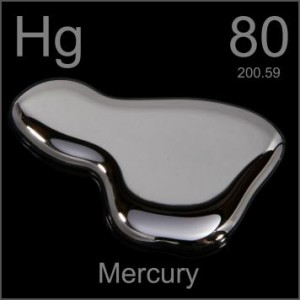Ancestry of Pink Disease (Infantile Acrodynia) Identified as a Risk Factor for Autism Spectrum Disorders
Source – http://www.tandfonline.com/doi/abs/10.1080/15287394.2011.590097?journalCode=uteh20
Abstract
Pink disease (infantile acrodynia) was especially prevalent in the first half of the 20th century. Primarily attributed to exposure to mercury (Hg) commonly found in teething powders, the condition was developed by approximately 1 in 500 exposed children. The differential risk factor was identified as an idiosyncratic sensitivity to Hg. Autism spectrum disorders (ASD) have also been postulated to be produced by Hg. Analogous to the pink disease experience, Hg exposure is widespread yet only a fraction of exposed children develop an ASD, suggesting sensitivity to Hg may also be present in children with an ASD. The objective of this study was to test the hypothesis that individuals with a known hypersensitivity to Hg (pink disease survivors) may be more likely to have descendants with an ASD. Five hundred and twenty-two participants who had previously been diagnosed with pink disease completed a survey on the health outcomes of their descendants. The prevalence rates of ASD and a variety of other clinical conditions diagnosed in childhood (attention deficit hyperactivity disorder, epilepsy, Fragile X syndrome, and Down syndrome) were compared to well-established general population prevalence rates. The results showed the prevalence rate of ASD among the grandchildren of pink disease survivors (1 in 25) to be significantly higher than the comparable general population prevalence rate (1 in 160). The results support the hypothesis that Hg sensitivity may be a heritable/genetic risk factor for ASD.
PR Release from Source
You can read here: http://www.swinburne.edu.au/chancellery/mediacentre/media-centre/news/2011/08/australian-research-finds-autism-risk-
Translation
Essentially what they are saying is that they found 522 people that were diagnosed with “Pink Desease” or mercury poisoning a long time ago and then checked out their grandchildren.
What they found was that 1 in 25 of those children were on the Autism Spectrum… which is a mighty big leap from the 1 in 160 children currently estimated in Australia.
The idea is that those 522 people must have had a greater weakness to mercury to be poisoned by it when other children were not… which, genetically, could mean that their children and even grandchildren would also have a greater weakness to it.
Thus, being exposed to it in seafood, dental fillings or preservatives in some vaccines may trigger a response in those children, including Autism.
My Opinion
This is simply my opinion of the story, stop reading if you do not want opinions and are happy just having read the details of the original study itself.
1. Aside from mercury poisoning symptoms having nothing in common with Autism symptoms, one would have to wonder how many, if any, of those 522 grandparents are Autistic.
2. The study makes no mention of verifying any of the original 522 people’s claims of having mercury poisoning. Being so long ago, it’s entirely possible they were misdiagnosed or not diagnosed at all. There was also no mention of verifying the grandchild’s Autism diagnoses either.
3. The rates, while still higher, resemble the rates found in the Korea total population study. A comparison of a control group vs comparing numbers of children being diagnosed on a regular basis is likely to be radically different for multiple reasons, including parents not recognizing the signs in their children, inappropriate facilities/services and so on.
4. If true, this would indicate that Autism is still largely genetic and is triggered by a toxin, such as mercury. Meaning that Autism could simply be onset since birth or “awoken” by introduction of some outside toxin, such as mercury.
I’ve long held the belief that Autism is not a “one cause, one cure, one story” disorder… that the reason it eludes scientists so much is that there is no one answer.
Do I believe that this study is the answer to it all? No. But it could lead to further answers. It certainly has a better chance than some other recent stories, like this one.
I have my doubts about this one as a lot of wholes were left open in terms of verifying data, it’s collection methods and what the numbers really mean.
But that doesn’t mean that there isn’t some real validity to it’s findings.
As I find more information, more insights, I’ll continue to update this article.
“Autism Study of the Month”
The purpose of the Autism Study of the Month series is to provide unpolluted (by the media) information about the studies released at least once a month in the study of possible Autism causes or risks.
You will find links to the actual studies, get to read the “abstract” of the study and, when possible, get the PR release from the source.
When it comes to science, let’s leave the media out of it.










